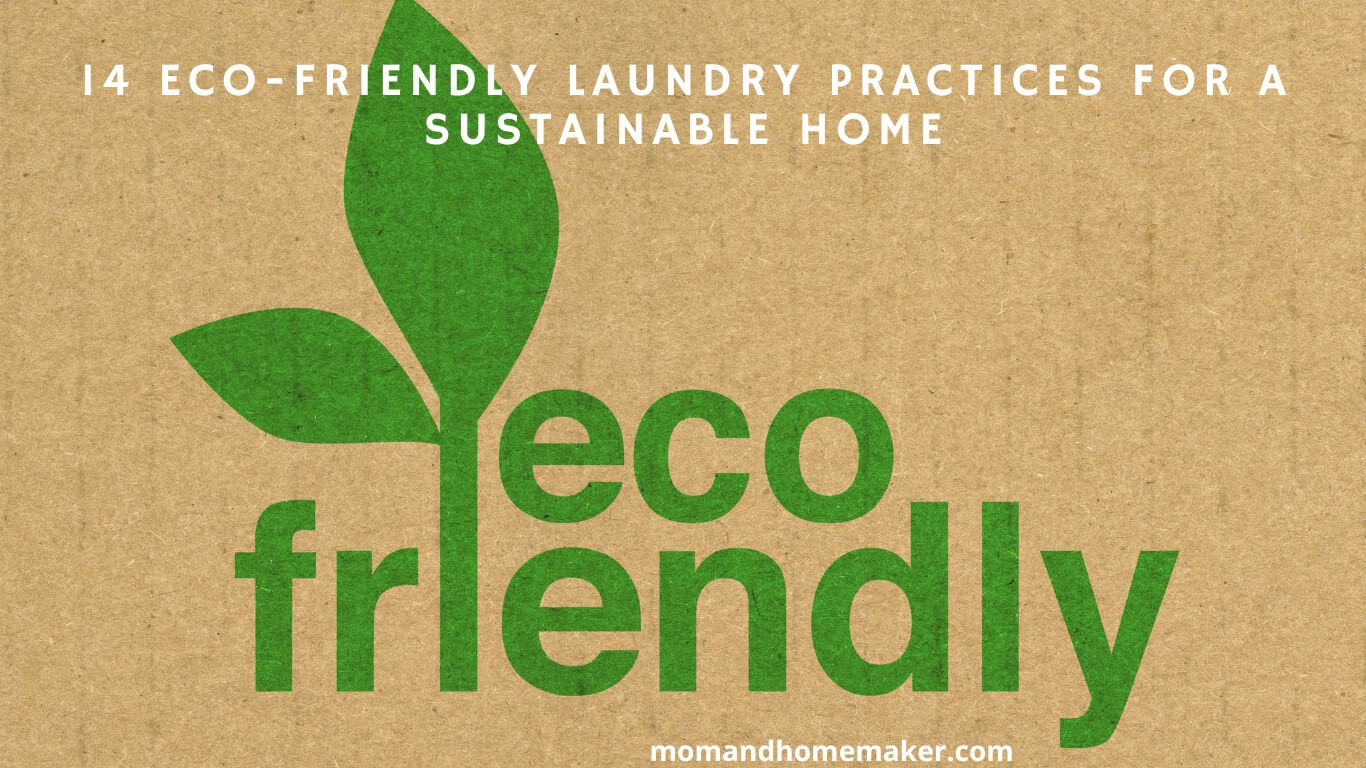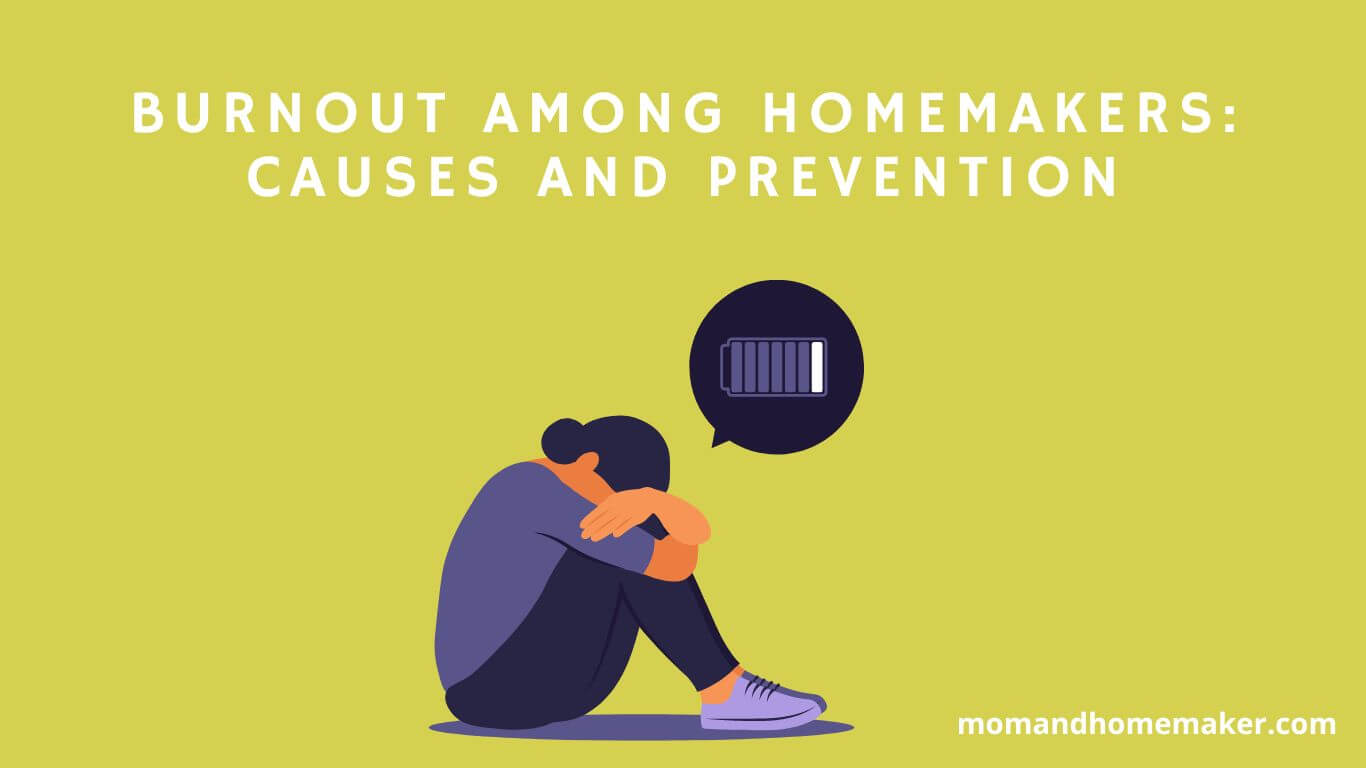In today’s environmentally conscious world, finding ways to reduce our carbon footprint and live more sustainably has become a top priority. One area where we can make a significant impact is in our laundry practices.
Traditional laundry methods often involve a significant amount of water and energy consumption, as well as the use of harsh chemicals that can harm both our health and the environment. However, by adopting eco-friendly laundry practices, we can not only reduce our environmental impact but also save money in the process.
These are just a couple of examples of the 14 practices we’ll explore in this article. Each practice has the potential to transform your laundry routine into a more sustainable one. Let’s begin our journey towards a greener home.

Use Cold Water for Washing
To save energy and reduce your carbon footprint, switch to using cold water for laundry. This simple change has several benefits. Using cold water helps preserve the colors and prevent shrinkage of your clothes.
Hot water can cause fading and damage delicate fabrics, so choosing cold water ensures your garments stay vibrant and new for longer. It also saves energy by eliminating the need to heat water, which accounts for a significant portion of your washing machine’s energy consumption.
To further reduce energy consumption, consider using a high-efficiency washing machine. These machines use less water and energy, helping you save money and resources. Wait until you have a full load before running the machine to maximize efficiency and reduce the number of cycles required.
When drying your clothes, air-drying is the most energy-efficient option. If you prefer using a dryer, choose the lowest heat setting and remove the clothes while still slightly damp to minimize drying time.
Choose Energy-Efficient Washing Machines
Upgrade to an energy-efficient washing machine to save energy and reduce your carbon footprint. Not only will you help the environment, but you’ll also enjoy lower energy bills and longer-lasting laundry appliances.
Here are three reasons why energy-saving washing machines are a great choice for eco-conscious individuals like you:
- Energy Efficiency: Energy-saving washing machines use less energy during each cycle, resulting in significant long-term energy savings. These appliances have advanced technologies like sensors that optimize water and energy usage based on load size and fabric type. By choosing an energy-efficient washing machine, you can effectively reduce your home’s energy consumption.
- Water Conservation: Eco-conscious laundry appliances prioritize water conservation in addition to energy efficiency. They use less water without compromising cleaning performance. With these machines, you can reduce your household’s water usage and contribute to preserving this precious resource.
- Longer Lifespan: Energy-saving washing machines are built to last. With their durable construction and advanced features, they can withstand frequent use and provide reliable performance for years. By investing in a quality eco-conscious washing machine, you can avoid frequent replacements, reducing waste and saving money in the long run.
Opt for Eco-Friendly Laundry Detergents
Consider switching to eco-friendly laundry detergents for a more sustainable laundry routine. By choosing environmentally friendly options, you can reduce your environmental impact. Eco-friendly laundry detergents are designed to be gentle on the environment and your health.
They’re made from biodegradable ingredients and don’t contain harsh chemicals or synthetic fragrances that can harm aquatic life or cause skin irritations.
When selecting eco-friendly laundry detergents, look for brands that prioritize sustainability and transparency. Brands like Seventh Generation, Ecover, and Mrs. Meyer’s Clean Day are committed to using plant-based ingredients and environmentally responsible manufacturing processes.
Using eco-friendly detergents not only benefits the environment but also your health and well-being. Traditional laundry detergents often contain chemicals that can cause respiratory problems, skin irritations, and allergies. Eco-friendly detergents are gentle on your clothes and skin, making them perfect for individuals with sensitive skin or allergies.
Air Dry Your Clothes Whenever Possible
To reduce your energy consumption and environmental impact, try air drying your clothes whenever possible. It’s a simple and accessible practice that brings several benefits to your laundry routine. Here’s why air drying can make a difference:
- Save energy: By skipping the dryer and allowing your clothes to air dry naturally, you can significantly reduce your energy usage. This means lower electricity bills and a smaller carbon footprint.
- Preserve clothing: Air drying is gentle on your clothes, preventing shrinkage, color fading, and wear and tear caused by the heat and tumbling of the dryer. This helps your favorite garments last longer, saving you money in the long run.
- Reduce static and wrinkles: Air drying minimizes static cling and reduces the need for ironing. Your clothes will come out naturally soft and with fewer wrinkles, saving you time and effort.
Make a conscious effort to air dry your clothes whenever you can. Not only will you save energy and preserve your clothing, but you’ll also enjoy the benefits of reduced static and wrinkles. It’s a small change that can make a big difference for both your wallet and the environment.
Avoid Overloading the Washing Machine
To avoid damaging your washing machine and ensure effective cleaning, make sure not to overload it. Overloading may seem like a time-saving trick, but it can result in poor stain removal and clothes getting damaged.
When you overload the washing machine, the clothes don’t have enough space to move freely, which hampers the cleaning process. This can lead to inadequate dirt and stain removal, leaving your clothes looking dull and dirty. Camming too many clothes into the machine can strain its motor and other components, resulting in expensive repairs or needing to replace the machine entirely.
By avoiding overloading, you can ensure that each garment receives the attention it needs to come out of the wash looking fresh and clean. This not only helps with effective stain removal but also prolongs the life of your clothes. Furthermore, it reduces excessive water and energy consumption, making your laundry routine more sustainable.
To ensure you don’t overload your washing machine, fill it no more than three-quarters full. This allows enough room for the clothes to move around and for the water and detergent to reach every garment.
Embrace Natural Stain Removers
Let’s discuss how you can use natural stain removers to keep your laundry eco-friendly. One effective option is making a DIY citrus stain remover using lemon or orange peels. These fruits have enzymes that can break down tough stains.
Another great natural stain remover is vinegar, which can help eliminate stubborn stains like coffee or wine. Using these natural alternatives not only helps the environment but also ensures effective stain removal.
DIY Citrus Stain Remover
Make your citrus stain remover a natural and effective way to remove stains. It’s not only cost-effective but also better for the environment. Here are three reasons why DIY citrus stain remover should be your go-to choice:
- Environmentally friendly: By using natural ingredients like citrus fruits, you avoid harsh chemicals that can harm the environment and your health.
- Effective: Citrus fruits contain natural enzymes that break down tough stains, making it a powerful and reliable stain remover.
- Budget-friendly: Making your citrus stain remover is cost-effective, as you can use simple ingredients that are readily available in your kitchen.
Vinegar for Tough Stains
Vinegar is versatile, eco-friendly, and affordable, making it a great alternative stain remover. Not only does it get rid of stains, but it also acts as a natural deodorizer, eliminating any vinegar smell.
To use vinegar for stain removal, simply add half a cup of white vinegar to your laundry detergent when washing clothes. The acidity of vinegar helps break down tough stains like grass, grease, and wine, leaving your clothes fresh and clean.
Reduce the Frequency of Washing
Have you thought about washing your laundry less frequently to be more eco-friendly? Reducing laundry frequency not only conserves water and energy but also saves time and money.
Here are three reasons why reducing laundry frequency is an eco-friendly practice:
- Preserving water resources: Washing clothes less often significantly reduces water consumption. Each laundry cycle uses a substantial amount of water for washing, rinsing, and spinning. By washing less frequently, you can help conserve this precious resource.
- Saving energy: Washing machines consume a significant amount of energy, especially when using hot water cycles. By reducing the frequency of washing, you can lower energy consumption and reduce your carbon footprint.
- Extending the lifespan of your clothes: Frequent washing can cause wear and tear on clothes, leading to loss of shape, color, and quality. By reducing laundry frequency, you can extend the lifespan of your garments, reducing the need for replacements and ultimately decreasing textile waste.
Use Reusable Dryer Balls Instead of Dryer Sheets
Reducing the frequency of washing helps preserve water resources and save energy. Another eco-friendly practice is using reusable dryer balls instead of dryer sheets.
Traditional dryer sheets may seem convenient, but they often contain harmful chemicals that can be detrimental to your health and the environment. Instead, consider using reusable dryer balls made from natural materials like wool or rubber. These balls can be used over and over again.
Using reusable dryer balls offers several benefits. They reduce static cling, leaving your clothes soft and static-free without the need for chemical-laden dryer sheets. They help separate your clothes while they tumble in the dryer, allowing hot air to circulate more efficiently and reducing drying time. This not only saves energy but also prolongs the life of your clothes.
To make your laundry routine even more eco-friendly, pair your reusable dryer balls with DIY laundry detergent and eco-friendly dryer sheets. DIY laundry detergent can be made using simple ingredients like washing soda, borax, and grated soap, reducing the need for store-bought detergents that often contain harmful chemicals.
Eco-friendly dryer sheets, made from natural materials, offer a great alternative to traditional dryer sheets and contribute to a more sustainable laundry routine.
Opt for Natural Fabric Softeners
Consider using natural fabric softeners to make your clothes softer and fresher while minimizing harm to the environment. Opting for natural fabric alternatives not only promotes a sustainable lifestyle but also ensures the well-being of your family and the planet.
Here are three eco-friendly fabric softener options that will make your laundry routine greener:
- Vinegar: This natural wonder not only softens your clothes but also eliminates odors and removes stains. Simply add half a cup of white vinegar to your laundry during the rinse cycle, and your clothes will come out feeling soft and smelling fresh.
- Wool Dryer Balls: These reusable balls are a great alternative to dryer sheets. Made from 100% natural wool, they reduce drying time, soften fabrics, and eliminate static. Just toss them into the dryer with your clothes and enjoy the benefits of these eco-friendly softeners.
- DIY Dryer Sheets: Create your reusable dryer sheets by soaking small pieces of cotton cloth in a mixture of water and a few drops of essential oils. These homemade sheets will leave your clothes feeling soft and smelling delightful, without the harmful chemicals found in conventional fabric softeners.
Repair or Repurpose Clothes Instead of Discarding
Instead of discarding damaged or ill-fitting clothes, try repairing or repurposing them to extend their lifespan and reduce waste. Repairing clothes is a sustainable practice that saves money and allows you to express your creativity.
If you have basic sewing skills, you can easily mend small tears, replace missing buttons, or fix loose hems. Taking the time to repair your clothes ensures that they continue to serve you well and stay out of landfills.
But what if the garment is beyond repair? Don’t worry, you can still give it a new life through upcycling. Upcycling involves transforming old clothes into something new and useful. For example, you can turn an old t-shirt into a trendy tote bag or transform worn-out jeans into a stylish denim skirt.
The possibilities are endless, and by upcycling, you reduce waste while creating unique and personalized items that reflect your style.
Repairing and repurposing clothes not only reduces the environmental impact of the fashion industry but also fosters a sense of connection to your belongings. It allows you to be more mindful of your consumption habits and embrace a sustainable lifestyle.
Invest in a Clothesline or Drying Rack
To make your laundry practices more eco-friendly, consider investing in a clothesline or drying rack. This decision not only helps reduce your carbon footprint but also offers numerous benefits. Let’s explore them:
- Benefits of a clothesline:
- Saves energy and reduces greenhouse gas emissions by eliminating the need for a dryer.
- Preserve the quality of your clothes as they aren’t exposed to high heat or tumbling.
- Gives your clothes a fresh scent and a natural feel.
- Naturally whitens and brightens your whites.
- Indoor drying options:
- If you lack outdoor space, choose an indoor drying rack.
- Opt for a collapsible drying rack that can be easily stored when not in use.
- Look for a rack with multiple tiers or adjustable height to maximize drying space.
Investing in a clothesline or drying rack not only contributes to a more sustainable home but also aligns you with a community dedicated to protecting the environment. By taking this step, you actively participate in the movement towards a greener future.
Avoid Using Excessive Amounts of Detergent
To make your laundry practices more eco-friendly, it’s important to be mindful of how much detergent you use. Using excessive amounts of detergent not only wastes money but also has negative environmental impacts.
When you pour more detergent than you need into your washing machine, it creates more suds and requires more water to rinse them away. This leads to increased water consumption, which isn’t ideal for conservation efforts. The excess detergent that goes down the drain can contribute to water pollution, harming aquatic life and disrupting ecosystems.
To avoid these issues, consider making your DIY laundry soap using natural ingredients like baking soda, vinegar, and essential oils. Not only does DIY laundry soap eliminate harmful chemicals, but it’s also cost-effective. You can find simple recipes online to guide you.
Wash Full Loads of Laundry
Maximize your eco-friendly laundry practices by washing full loads of laundry. This not only saves you time and effort but also reduces water consumption and promotes sustainable living.
Here are three reasons why washing full loads of laundry is beneficial:
- Save water: Washing full loads of laundry efficiently utilizes your washing machine, avoiding unnecessary water wastage. This simple change in your laundry routine can significantly reduce your water consumption and conserve this precious resource.
- Conserve energy: Running your washing machine for full loads consumes less energy per item compared to running multiple smaller loads. By reducing the number of wash cycles, you can save on electricity and contribute to a more sustainable home environment.
- Extend the life of your clothes: Overloading your washing machine can damage your clothes, and washing small loads can be equally harmful. By washing full loads, you strike the right balance, ensuring that your clothes are effectively cleaned without excessive wear and tear.
Use Eco-Friendly Washing Machine Settings
To make your laundry practices more environmentally friendly, take advantage of the water-saving washing cycles and energy-efficient temperature settings on your washing machine.
These settings can help reduce water and energy consumption, saving you money and reducing your impact on the environment.
Water-Saving Washing Cycles
Using eco-friendly settings on your washing machine can help you save water during laundry cycles. By incorporating these settings into your routine, you can contribute to environmentally friendly laundry practices and establish sustainable habits.
Here are three water-saving washing machine settings that you can use:
- Quick Wash: This setting uses less water and completes the cycle faster, making it perfect for lightly soiled clothes or when you’re in a hurry.
- Cold Water Wash: By washing your clothes in cold water instead of hot, you not only save energy but also reduce water consumption.
- Load Sensing Technology: This feature automatically adjusts the water level based on the size of your laundry load, preventing excessive water usage.
Energy-Efficient Temperature Settings
Consider adjusting the temperature settings on your washing machine to be more energy-efficient, promoting eco-friendly laundering practices.
Using energy-efficient temperature settings can help reduce your carbon footprint and contribute to a more sustainable home. One way to achieve this is by choosing cold water washing. Cold water washing saves energy and helps maintain the quality of your clothes. It eliminates the need to heat water, reducing energy consumption and greenhouse gas emissions.
Cold water washing prevents colors from fading and minimizes shrinkage, ensuring that your clothes last longer. Embracing energy-efficient water usage and the benefits of cold water washing can make a significant difference in both the environment and your laundry routine.
Conclusion
Implementing these eco-friendly laundry practices can have a significant impact on the environment while maintaining a sustainable home.
Use cold water, energy-efficient washing machines, and eco-friendly detergents to reduce your carbon footprint. Hang your clothes on a clothesline or drying rack to let them air dry, and wash full loads to maximize efficiency.
Let’s take small steps towards a greener future together.












